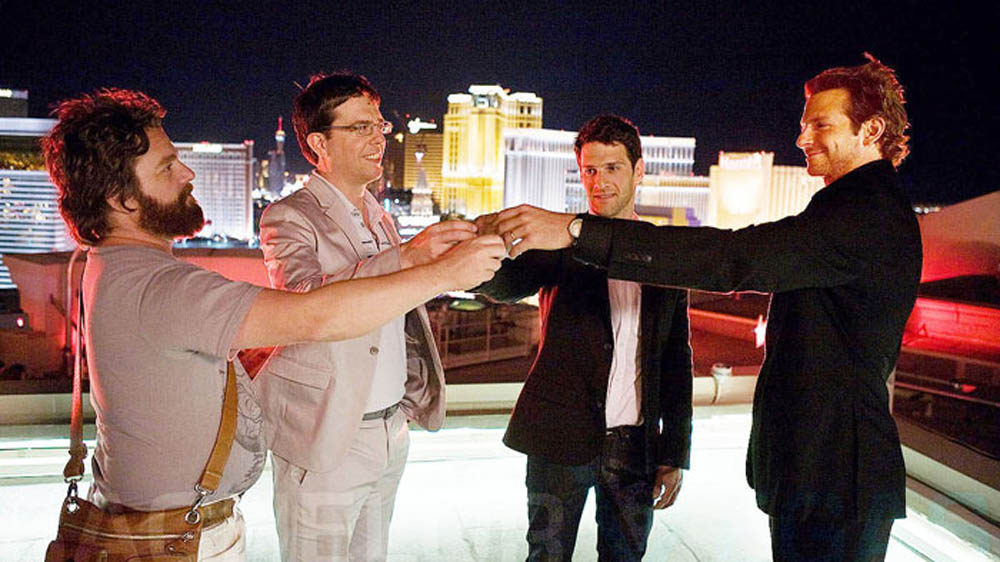Casino Song Hangover
The (/ðə,ðiː/(listen)) is a grammatical article in English, denoting persons or things already mentioned, under discussion, implied or otherwise presumed familiar to listeners, readers or speakers. It is the definite article in English. The is the most commonly used word in the English language; studies and analyses of texts have found it to account for seven percent of all printed English-language words.[1] It is derived from gendered articles in Old English which combined in Middle English and now has a single form used with pronouns of either gender. The word can be used with both singular and plural nouns and with a noun that starts with any letter. This is different from many other languages which have different forms of the definite article for different genders or numbers.
Winnings can be significantly enhanced when playing these games as Casino Chip icons can emerge on random icons during the game. You can also win up to eight free spins when playing this game. The Hangover offers players with 4 progressive jackpots. The Hangover: A bachelor party goes horribly wrong when the groom goes missing and his friends can not remember what happened the night before. 2010: Percy Jackson & the Olympians: The Lightning Thief: Percy travels to Las Vegas and enters a fictional casino modeled after Caesar's Palace. 2010: Get Him to the Greek: 2011: Fright Night: 2011.
Enjoy millions of the latest Android apps, games, music, movies, TV, books, magazines & more. Anytime, anywhere, across your devices. 'A Hard Day's Night' was the title song to The Beatles' first movie, which was surprisingly good: it was nominated for two Oscars. Train's guitarist had to Google an instructional video to learn how to play the ukulele for 'Hey Soul Sister.' Enrique Iglesias' single 'Bailando' was the first ever.
'Hangover' is a single by South Korean K-pop musician Psy, produced by Yoo Gun-hyung, featuring American rapper Snoop Dogg. Its music video debuted on the June 8, 2014 broadcast of Jimmy Kimmel Live! As of October 2020, the video has received over 345 million views on YouTube. The song serves as a follow-up to Psy's two international hit singles 'Gangnam Style' and 'Gentleman'.
Pronunciation
In most dialects, 'the' is pronounced as /ðə/ (with the voiced dental fricative/ð/ followed by a schwa) when followed by a consonant sound, and as /ðiː/ (homophone of pronoun thee) when followed by a vowel sound or used as an emphatic form.[2]
Modern American and New Zealand English have an increasing tendency to limit usage of /ðiː/ pronunciation and use /ðə/, even before a vowel.[3][4]
Possessive
Definite article principles in English are described under 'Use of articles'. The, as in phrases like 'the more the better', has a distinct origin and etymology and by chance has evolved to be identical to the definite article.[5]

Article
The and that are common developments from the same Old English system. Old English had a definite article se (in the masculine gender), sēo (feminine), and þæt (neuter). In Middle English, these had all merged into þe, the ancestor of the Modern English word the.[6]
Geographic Usage
An area in which the use or non-use of the is sometimes problematic is with geographic names:

- notable natural landmarks – rivers, seas, mountain ranges, deserts, island groups (archipelagoes) and so on – are generally used with a 'the' definite article (the Rhine, the North Sea, the Alps, the Sahara, the Hebrides).
- continents, individual islands, administrative units and settlements mostly do not take a 'the' article (Europe, Jura, Austria (but the Republic of Austria), Scandinavia, Yorkshire (but the County of York), Madrid).
- beginning with a common noun followed by of may take the article, as in the Isle of Wight or the Isle of Portland (compare Christmas Island), same applies to names of institutions: Cambridge University, but the University of Cambridge.
- Some names include an article, such as the Bronx or The Hague.
- generally described singular names, the North Island (New Zealand) or the West Country (England), take an article.
Countries and territorial regions are notably mixed, most exclude 'the' but there are some that adhere to secondary rules:
- derivations from collective common nouns:
- united/ union: the United States, the United Kingdom, the Soviet Union, the United Arab Emirates
- full names – the Czech Republic (but Czechia), the Russian Federation (but Russia), the Principality of Monaco (but Monaco), the State of Israel (but Israel) and the Commonwealth of Australia (but Australia).[7][8][9]
- 'islands', 'isle' or 'land': the Netherlands, the Falkland Islands, the Faroe Islands, the Cayman Islands, the Philippines and the Comoros
- Singular derivations from 'island' or 'land' that hold administrative rights – Greenland, England, Christmas Island and Norfolk Island – do not take a 'the' definite article.
- derivations from mountain ranges, rivers, deserts, etc., are sometimes used with an article, even for singular, (the Lebanon, the Sudan, the Yukon).[10] This usage is in decline, the Gambia remains recommended where as use of the Argentine for Argentina is considered old-fashioned. Since Ukraine‘s independence, most style guides have advised against the Ukraine.[11] In other languages, that have used or use Cyrillic script, have similar style guides involving prepositions.
Abbreviations
Since 'the' is one of the most frequently used words in English, at various times short abbreviations for it have been found:
- Barred thorn: the earliest abbreviation, it is used in manuscripts in the Old English language. It is the letter þ with a bold horizontal stroke through the ascender, and it represents the word þæt, meaning 'the' or 'that' (neuter nom. / acc.).
- þͤ and þͭ (þ with a superscript e or t) appear in Middle English manuscripts for 'þe' and 'þat' respectively.
- yͤ and yͭ are developed from þͤ and þͭ and appear in Early Modern manuscripts and in print (see Ye form).
Occasional proposals have been made by individuals for an abbreviation. In 1916, Legros & Grant included in their classic printers' handbook Typographical Printing-Surfaces, a proposal for a letter similar to Ħ to represent 'Th', thus abbreviating 'the' to ħe.[12]
In Middle English, the (þe) was frequently abbreviated as a þ with a small e above it, similar to the abbreviation for that, which was a þ with a small t above it. During the latter Middle English and Early Modern English periods, the letter thorn (þ) in its common script, or cursive form, came to resemble a y shape. As a result, the use of a y with an e above it () as an abbreviation became common. This can still be seen in reprints of the 1611 edition of the King James Version of the Bible in places such as Romans 15:29, or in the Mayflower Compact. Historically, the article was never pronounced with a y sound, even when so written.
References
- ^Norvig, Peter. 'English Letter Frequency Counts: Mayzner Revisited'.
- ^'the – definition'. Merriam Webster Online Dictionary.
- ^Ladefoged, Peter; Johnson, Keith (2010). A Course in Phonetics (6th ed.). Boston: Wadsworth. p. 110.
- ^Hay, Jennifer (2008). New Zealand English. Edinburgh: Edinburgh University Press. p. 44.
- ^'the, adv.1.' OED Online. Oxford University Press, March 2016. Web. 11 March 2016.
- ^'The and That Etymologies'. Online Etymology Dictionary. Retrieved 18 June 2015.
- ^Using ‘the’ with the Names of Countries
- ^List of Countries, Territories and Currencies
- ^UNGEGN World Geographical Names
- ^Swan, Michael How English Works, p. 25
- ^Ukraine or 'the Ukraine'? by Andrew Gregorovich, infoukes.com
- ^Missed Opportunity for Ligatures
| Look up hangover in Wiktionary, the free dictionary. |
A hangover is an unpleasant physiological effect that often follows the extensive consumption of alcohol.
Hangover or Hungover may also refer to:
Film and television[edit]
- The Hangover, a 2009 film
- The Hangover Part II, a 2011 film
- The Hangover Part III, a 2013 film
- Hangover (2010 film), an Indian film
- Hangover (2014 film), an Indian film
- 'Hangover' (Sanctuary), an episode of Sanctuary
Music[edit]
- The Hangovers (band), a British indie music group formed in 1998
- The Hangovers, an a cappella group formed in 1968, and their eponymous 1970 album
Albums[edit]
- The Hangover (Funkoars album) (2008)
- The Hangover (Gilby Clarke album) (1997)
- The Hangover (Obie Trice album) (2015)
Songs[edit]
- 'Hangover' (Taio Cruz song), 2011
- 'Hangover' (Starboy Nathan song), 2011
- 'Hangover' (Psy song), 2014
- 'Hangover', a song by Max Webster from the album Max Webster, 1976
- 'Hangover', a song by America from the album Alibi, 1980
- 'Hangover', a song by Betty Boo from the album GRRR! It's Betty Boo, 1992
- 'Hangover', a 1961 song by the Fabulous Flee-Rekkers
- 'Hangover', a 1983 song by Serious Drinking
- 'Hangover', a 2010 song by Jason White
- 'Hungover', a song by Michelle Williams from the album Unexpected, 2008
- 'Hungover', a song by Kesha from the album Animal, 2010
- 'Hungover', a song by Cascada from the album Original Me, 2011
Hangover Casino Song
Other uses[edit]
Hangover Casino Song Name
- A phenomenon in which a sports team that wins a championship performs poorly the following season, such as the Super Bowl hangover.